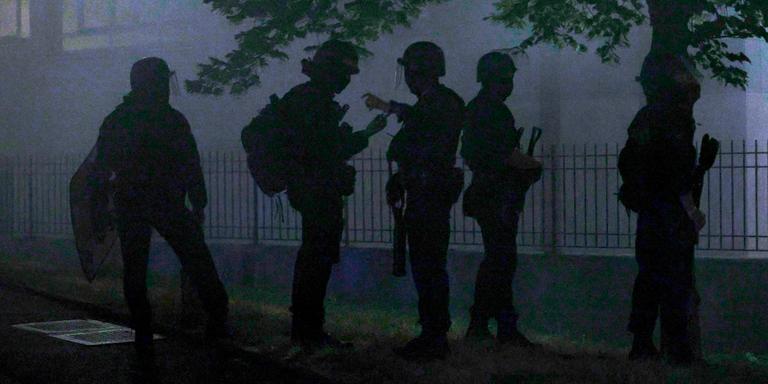


'From hunters to hunted:' A growing sense of unease among French police forces
InvestigationThe urban violence that shook France at the start of the summer had a major impact on frontline police. Le Monde's investigation shows the extent to which this ultra-violent period has heightened their malaise and a deepening sense of injustice.
The wounds are accumulating and the scars never have time to fully heal in the world of the police, whose members are raw, bruised and disoriented. The riots at the end of June and beginning of July, following the death of 17-year-old Nahel M., who was killed by police gunfire for refusing to obey a traffic stop, added a layer of anger to an already fragile, if not explosive, situation. "This is a moment of tension that could be a point of no return," warned a prefect – one of the highest-ranking officials in the interior ministry – who was deeply affected by the extreme violence of the riots and by the July protest movement, which was followed by a protest by a portion of the police force, which was angered when an officer from the Marseille anti-criminality brigade (BAC) accused of intentional violence during the riots was remanded into custody.
On September 1, Stéphane Barthélemy, a 52-year-old commander, opened the door to his room in the unremarkable hotel in an unremarkable commercial zone where part of CRS 20 company has set up its base camp in Grande-Synthe, on the outskirts of Dunkirk in northern France. Then there were three weeks near Calais, trying to prevent migrants from crossing the Channel. Then two weeks' rest in Limoges, where the police officers' families live. Finally, three weeks in Nice, this time to prevent migrants from entering the country, in this cyclical, sometimes strange mission entrusted to them by the Republic.
During the riots at the end of June, the company was called in as emergency reinforcements in Creil (northern France), to support local forces, which were overwhelmed, as it happened in hundreds of towns, by highly organized assailants. Barthélemy and around 30 CRS troops moved into the fire station on the plateau, close to the low-income housing, to prevent any attempts at arson. Quickly confronted by a large number of rioters – between 100 and 150 – they were ordered to attempt a frontal assault on a burnt-out barricade behind which looting was taking place. Molotov cocktails and a shower of projectiles split the group in two. "It was all raining down on us. I've never seen such intensity, except in Corsica [after Yvan Colonna's murder in prison in 2022]," said the commander, who has 29 years' experience, including the urban riots of autumn 2005.
In the chaos of the violence, he found himself cut off with four other CRS. "My biggest fear wasn't making a mistake," he said, "it was having someone in my group get injured." He was the one who got injured. A paving stone hit him below the neck. He didn't fall and kept going for an hour, buoyed by adrenalin. Reinforcements came to the rescue of the isolated CRS officers and they were able to extricate themselves. But when Barthélemy laid down his weapons and helmet in the middle of the night, his legs failed him and he was unable to get up. The diagnosis that came in the hospital emergency room was a concussion and cervical sprain, resulting in 35 days off work. The commander was decorated, his sixth medal. Although the dizziness persists, he has recovered from this injury, the 15th of his career and not the most serious.
You have 86.01% of this article left to read. The rest is for subscribers only.
